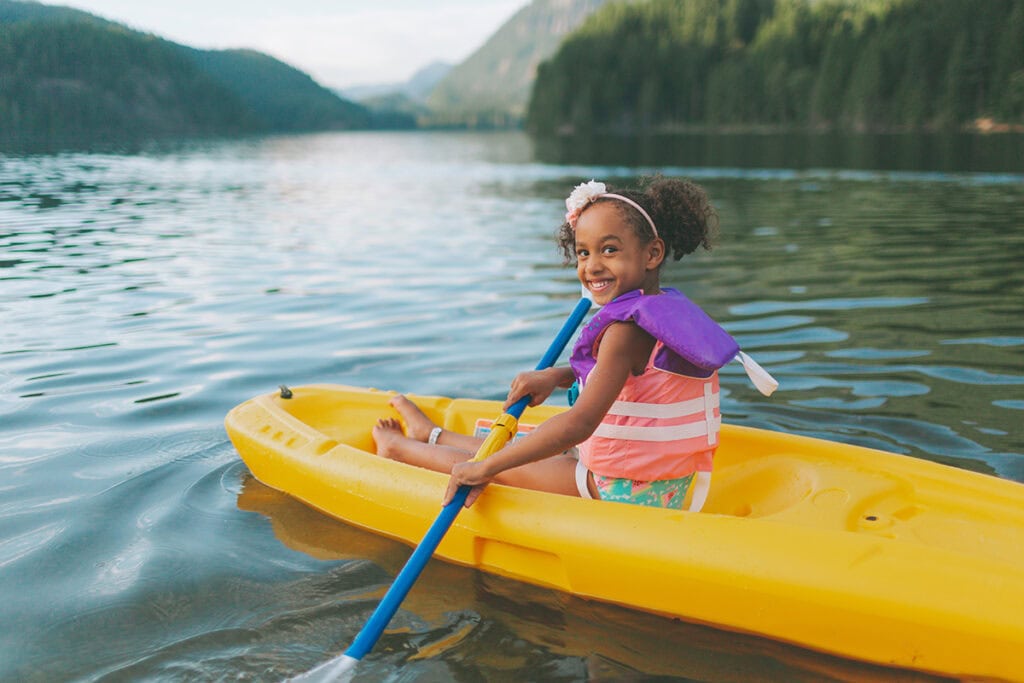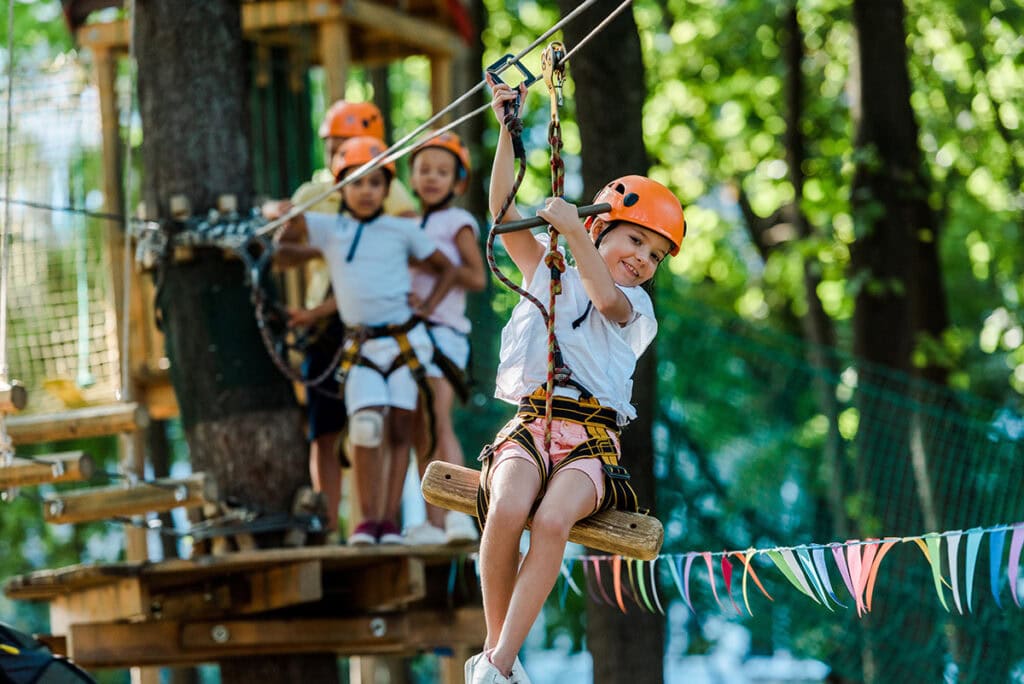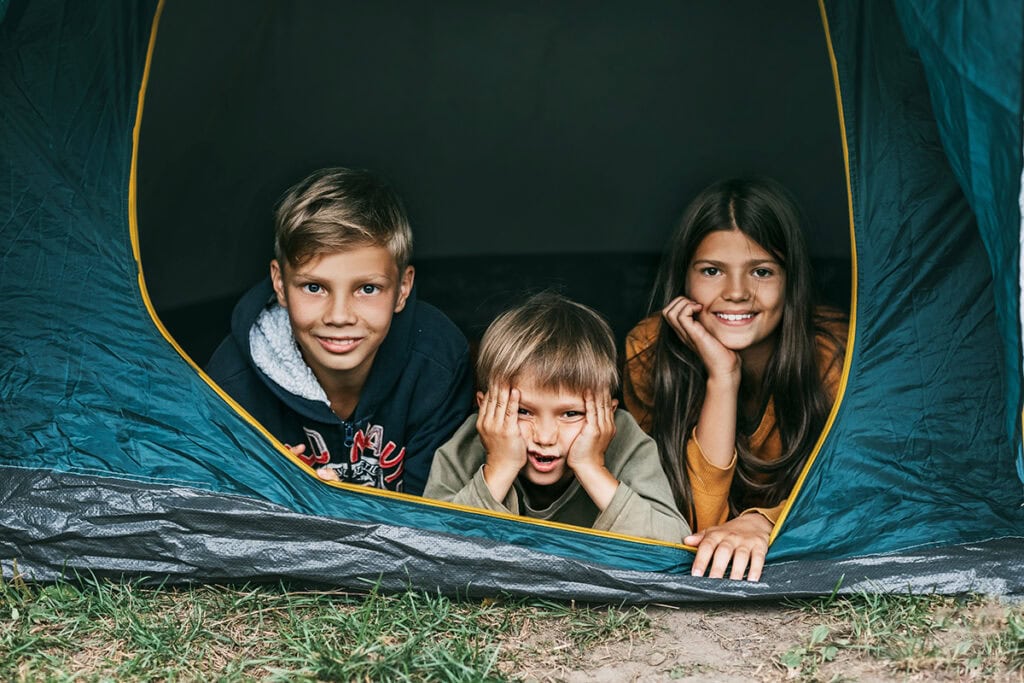Key Takeaways:
- Research the camp’s safety policies, staff qualifications, and emergency procedures before enrolling your child.
- Teach them about personal safety, staying hydrated, and following camp rules to prevent accidents.
- If negligence leads to an injury, document the incident and seek legal assistance to protect your child’s well-being.
Summer camp is an exciting time for children. It gives them the chance to make new friends, learn new skills, and explore the outdoors. But as a parent, your top priority is your child’s safety.
Whether they are attending a day camp or an overnight camp, it’s important to ensure that the camp follows strict safety guidelines. In this blog, we will cover essential safety concerns and what you can do to help protect your child from childcare injuries.
Common Summer Camp Risks

Every summer camp activity comes with its own risks. Being aware of the risks can help you take the necessary precautions. Here are some common dangers children may face at camp:
Injuries from Physical Activities
Injuries from physical activities are a common concern. Many camps offer activities such as swimming, hiking, sports, and climbing. While these activities provide fun and excitement, they also come with risks. These risks include:
- Falls
- Broken bones
- Sprains
- Muscle injuries
- Drowning or near-drowning
Ensuring children follow safety guidelines and are supervised by trained staff can help prevent injuries.
Heat-Related Illnesses
Heat-related illnesses are another major concern. This is particularly true in regions with extreme summer temperatures like Texas. Children participating in outdoor activities are at risk of:
- Dehydration
- Heat exhaustion
- Heatstroke
Proper hydration, shade breaks, and monitoring for early signs of heat-related illnesses are essential for keeping campers safe.
Food Allergies and Contamination
Food allergies and contamination pose another significant risk. Many camps provide meals for campers. But, improper food handling or cross-contamination can lead to severe consequences, such as:
- Allergic reactions
- Food poisoning
- Gastrointestinal illnesses
Camps should have clear policies in place for handling food allergies. They should also maintain proper hygiene in food preparation areas.
Bullying and Emotional Stress
Bullying and emotional stress can also impact a child’s camp experience. Social challenges, such as bullying or peer pressure, can cause emotional distress. They can also negatively affect a child’s well-being. Camps should foster an inclusive and supportive environment to ensure all children feel safe and valued.
Poor Supervision and Negligence
Poor supervision and negligence can increase the likelihood of accidents and injuries. If a camp lacks adequate supervision or trained staff, children may be at risk of harm. Neglect, abuse, or unsafe conditions are all significant risks. Proper staff training and maintaining an appropriate camper-to-staff ratio are crucial. These can help ensure a safe and enjoyable camp experience.
How to Ensure Your Child’s Safety at Camp

As a parent, you can take steps to make sure your child has a safe and enjoyable camp experience. Here are some important precautions:
Research the Camp’s Safety Policies
Before signing your child up for camp, it’s important to make sure the camp is a safe place. Every camp should have rules and plans in place to protect children. Take time to research their safety policies so you can feel confident that your child will be well cared for.
Before enrolling your child in a camp, check:
- Staff training – Are staff members CPR and first aid certified?
- Camper-to-staff ratio – Is there enough supervision for all children?
- Emergency procedures – How does the camp handle medical emergencies?
- Background checks – Are staff members properly vetted?
Ask About Medical Preparedness
Keeping your child healthy at camp is just as important as keeping them safe. Before choosing a camp, ask about their medical preparedness. Knowing that trained staff, proper procedures, and medical resources are in place will give you peace of mind while your child is away. Some good questions to ask are:
- Does the camp have a nurse or medical professional on-site?
- What is the camp’s procedure for handling medical emergencies?
- How does the camp communicate with parents in case of a medical emergency?
- Where is the nearest hospital or urgent care facility, and how quickly can children be transported there if needed?
- How are medications handled for children with prescriptions?
- Are there protocols in place for allergies and asthma attacks?
- Are staff members trained in CPR and first aid?
Pack Essential Safety Items
Make sure your child has everything they need to stay safe and comfortable at camp. Some important items to pack include:
- A refillable water bottle – Staying hydrated is very important, especially when playing outside in the heat. Remind your child to drink water often, even if they don’t feel thirsty.
- Sunscreen and insect repellent – The sun can cause painful burns, and bug bites can be annoying or even lead to infections. Show your child how to apply sunscreen and bug spray so they can protect themselves throughout the day.
- Proper footwear for activities – Camps include lots of walking, running, and playing. Wearing the right shoes, like sneakers or hiking boots, helps prevent blisters, trips, and falls.
- Any necessary medications with clear instructions – If your child takes medicine, pack enough for their time at camp. Include clear directions for when and how to take it. Make sure the camp staff knows about any special medical needs.
Discuss Safety Rules with Your Child
Talking to your child about safety rules before camp is very important. It helps them make good choices, stay safe, and know what to do in different situations. Help your child understand:
- The importance of listening to camp counselors
- What to do if they feel unwell or unsafe
- How to stay hydrated and apply sunscreen regularly
Reminding them to listen to camp counselors is key. Counselors give rules that keep kids safe and prevent accidents. Teaching your child what to do if they feel sick or unsafe helps them know when to ask for help, whether they are not feeling well, feeling upset, or in an uncomfortable situation with other kids or staff.
Keep Open Communication
If the camp allows communication, check in with your child to see how they are doing. If your child tells you they feel unsafe or have a problem, take their concerns seriously. Let them know it’s okay to speak up about anything that makes them uncomfortable. If something seems wrong, contact the camp staff right away to discuss the issue and find a solution. Your child’s safety and happiness should always come first.
What to Do If Your Child Is Injured at Camp
Despite the best precautions, accidents can still happen. If your child is injured due to negligence or lack of supervision at camp, here’s what you should do:
- Seek Medical Attention Immediately – Ensure your child receives proper medical care as soon as possible.
- Document the Incident – Take photos of the injury and any unsafe conditions. Get statements from witnesses if possible.
- Request a Full Report from the Camp – Ask for a written incident report detailing what happened and how the camp responded.
- Consult a Personal Injury Lawyer – If negligence played a role in your child’s injury, you may be able to recover for medical bills and emotional distress. An experienced childcare injury attorney can help you understand your options.
Protecting Your Child’s Rights
At Snellings Law, we are dedicated to helping families navigate personal injury claims. If your child was harmed due to a camp’s negligence, you don’t have to face this alone. Our experienced attorneys will fight for your family’s rights and ensure your child receives the healing they deserve.
We understand how distressing it can be to see your child suffer due to someone else’s negligence. Our team will thoroughly investigate the incident, gather evidence, and build a strong case to hold the responsible parties accountable. We work tirelessly to help you recover for medical expenses, pain and suffering, and any other losses your family has endured.
Don’t wait to take action. If your child was injured at summer camp, call Snellings Law today at (214) 387-0387 for a free consultation. We will listen to your concerns, guide you through the legal process, and help you secure the best possible outcome for your case. Your child’s safety and well-being are our top priorities.





